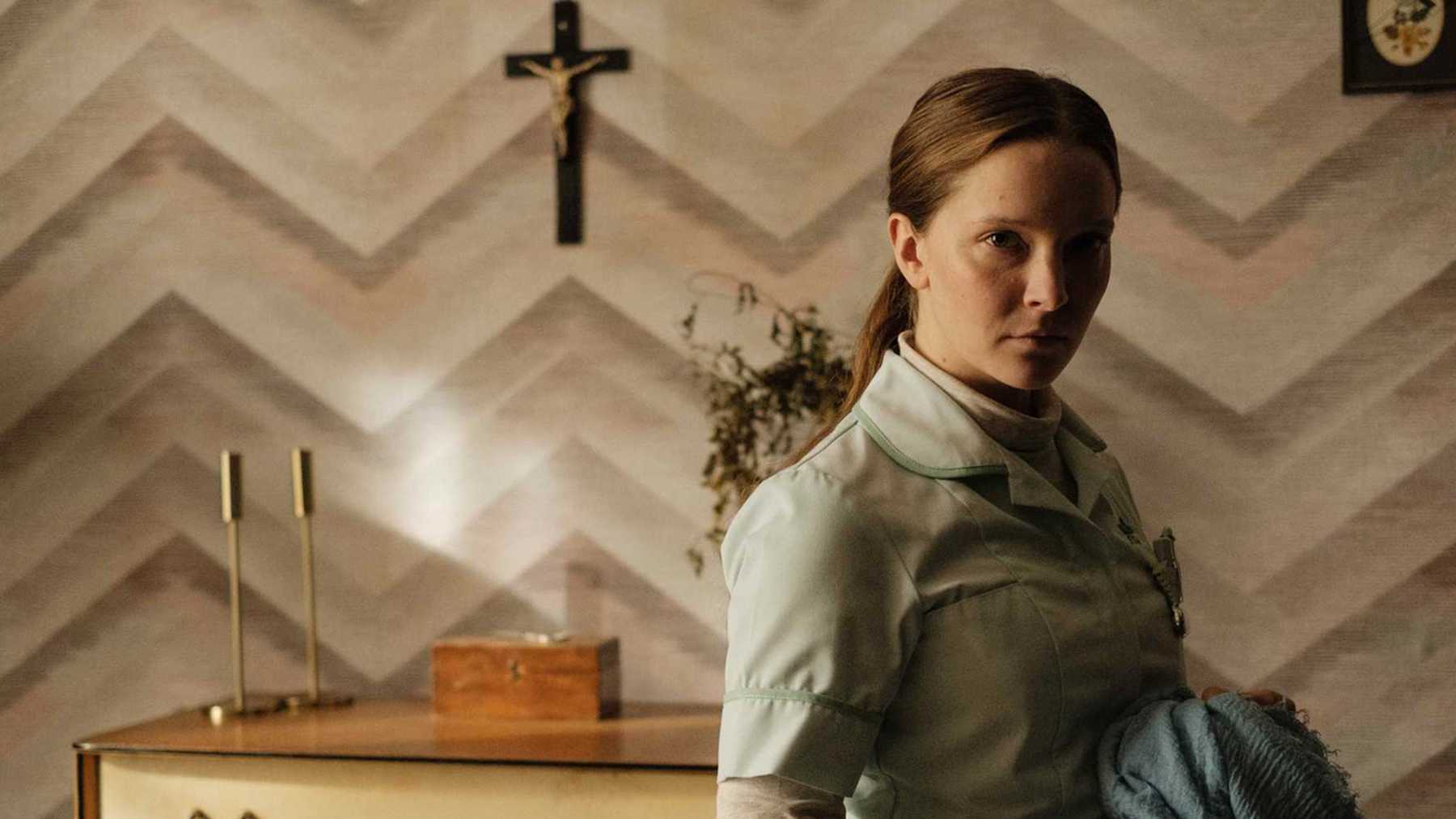In a sold-out event for Edinburgh’s Filmhouse, horror seems to be the genre encouraging people back into the world of cinema. Rose Glass’ psychological thriller (a debut piece nonetheless) Saint Maud plummets the audience into the morose and obsessive mindscape of a young, seemingly good-natured nurse as she comes to care for a dying patient. With a redemptive mindset, Maud seeks not only to ease the woman’s suffering body but to care for her ailing spirit.
Full of ritualised obsession, Morfydd Clark’s performance of Maud is unsettling, yet it conjures grounded insecurities, and dare we say, even recognition. Embodying the horror staple of a lurking darkness beneath the unexpected or even mundane, Glass frames Maud as a doormat, complacent and bland.
There’s a rarity with Clark’s performance in so far as how remarkably unhabitual she dimensions herself as Maud. It’s a display of integration, rather than performance, carrying a desperate struggle as an otherwise kind young woman, grappling with severe mental issues. They say that Hell is paved with good intentions – well, Clark makes it so that the audience falls in line behind her choices at first.
Lampooning her career, life and religious intentions, much of the cast find Maud an oddity, but harmless. Perhaps most gravely, so too does her patient Amanda, a once sensational dancer succumbing to the end of her days. Jennifer Ehle’s booze-hounding party girl is a woman ensuring her final hours won’t be spent on medication and stagnation, but filled with frivolity, time with her female partner (Lily Frazer) and the luxury of sin.
And as much as Amanda toys with Maud’s lifestyle choices, the pair form a genuine sense of connection between them, as much as the spider has with its fly. Saint Maud demonstrates its deep-seated physicality and erotic ties with religious obsession and the intimacy of palliative care and nursing. The levels of complexity and warped beauty in Glass’ filmmaking demonstrate an unequivocal understanding of the brilliance in psychological horror.
A masterclass in horror cinema, Ben Fordesman’s framing of the film is uncomfortable and intense. He seems determined to cause distress in the audience, pushing them into unfamiliar situations and angles. While you may suspect this aids in grounding Maud’s reality from her psychosis, the cinematography deftly blurs the line even more.
This blurring of reality is where grazing slip-ups happen, where the psychological nature of the film worries filmmakers that the audience will knot themselves in deciphering. A tiny let-down is that a vast portion of Saint Maud concerns Maud’s past, never divulging the truth and wishing the audience to put together a jigsaw which is sadistically missing a few components. Occasionally, the imagery stretches beyond the scope of the film, as the delusions Maud suffers eke themselves from the realms of believability and into a more schlocky horror aspect in reinforcing how unhinged from reality her obsessions are.
This said, the meticulously well-crafted palette lends itself so intensely into shadow manipulation that when the scenes set up tension, they delivers in subtle ways. It isn’t solely the eyes which are forced into uneasiness; Saint Maud’s soundtrack is a composition of hellscapes, written by angels. A slice of the film blends an end-of-days party album with distortions of divine opulence, scratching disc-jockeys and warped air-raid sirens. Disconcerting, Glass does all they can to leave the audience writhing as they watch the movie unfold.
A reformation of contemporary horror, Saint Maud is the unlikely saviour of the genre in testing times. Glass’ unwillingness to sully the film with cheap novelty, instead ingraining its twisting gnarled roots in a religious sub-text, makes for a visually exquisite embrace of eroticised religion and a near-ideal eighty-minute horror classic.
Screening at the Edinburgh Filmhouse from Fri 9 Oct 2020
